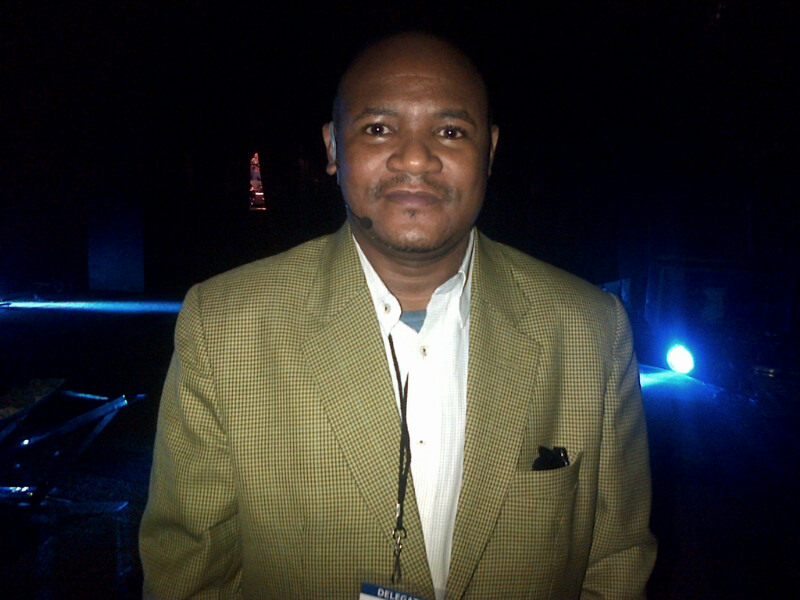That Nigeria is broke is not news, what is news is ‘how the country will get out of the doldrums and revamp its economy’. Anywhere one turns from federal ministries to state governments, they are complaining about inadequate financial resources to finance its programmes. Many governors reportedly met empty treasury. President Buhari aware of the financial mess is reportedly temporary turning to international community to support Nigeria.
This is the time for deeper reflection and every patriotic Nigerian to support by bringing ideas that will help the government at local, state and federal level, because without adequate funding, the country will not witness any growth and improved quality of life. It is against this background I found the Government Spending Watch 2015 Report titled ‘Financing the Sustainable Development Goals’ very useful.
The report is published by the Development Finance International (DFI) via investigative data-gathering with government officials, across seven key sectors: agriculture and food, education, environment, health, social protection, water/sanitation/hygiene (WASH), and women’s rights. These data were published to help increase spending levels and transparency. We should not forget that the 2015 is the year to launch the new set of more ambitious Sustainable Development Goals (SDGs) for 2016-2030 with a clear recommendations on how Financing for Development (FfD) should fund such.
The report revealed that government spending in developing countries has risen rapidly in 2012-14, but revenues have not. This has led to growing deficits, resulting in sharp increases in debt service. As a result, debt service is “crowding-out” MDG spending in 21 of 66 countries, and MDG spending has not risen to the same degree as overall government spending, because debt service has absorbed 40% of the extra spending, and infrastructure 35% – only 25% of additional finance has been allocated to MDG sectors.
How is the health sector fairing compared to others as shown below?
- Education. Only 19-22% of countries are meeting EFA (education for all) targets, though average spending is 80% of the target and most countries are increasing. Education is closest to reaching its MDG targets, but the SDGs’ lifelong high-quality learning agenda will require US$161 billion more.
- No African country is meeting its targets, though 40% of all countries are meeting WHO per capita spending targets. Average spending is only half the targeted level, and recent trends have been mixed. Universal free health care will require an increase of US$50-80 billion, and a major effort to monitor spending split by disease and beneficiary group.
- WASH (Water and Sanitation). Only 10% of countries are meeting targets, spending averages less than 1% of GDP, and a majority of countries are reducing spending as a percentage of GDP.
Overall, countries should be spending close to 60% of their budgets on the MDGs, but current allocations are only 38% and falling. With respect to financing the new set of sustainable development goals (SDGs), the report observed that “the SDGs therefore require a massive step up in domestic resource mobilisation, which requires: major changes in international tax rules and practices, to give fair treatment to developing countries, including in current G20/OECD tax initiatives. By allocating taxation rights primarily to source countries of raw materials, redesigning tax treaties and sharply reducing tax exemptions. Major reinforcement of developing country capacity to receive, analyse, audit and supply tax information, prosecute evaders, and renegotiate contracts and agreements with corporations. Agreement on inclusive global governance of cooperation in tax matters, via the FfD process and a reinforced UN Tax Committee, to give developing countries equal decision-making power.”
Can Nigeria learn from the above passage, bearing in mind that in year 2015 it couldn’t finance its vaccine procurement, World Bank had to bail out Nigeria. If the country doesn’t t improve taxation and the way its manages financial resources, in 2016 and beyond, it will still have to borrow not only to finance vaccines but other live saving drugs.
The report also highlighted that the Post-2015 needs a more rational accountability for sectoral aid allocation and it also makes recommendations to improve financing effectiveness in each sector. Finally, the report stresses the need for dramatic improvement in effectiveness of financing. It also made a strong recommendation which I think Nigeria should also key in. It has to do with citizens in developing and developed countries holding governments and donors accountable. This process begins with greater transparency, especially of data on spending and revenue/aid in budget-related documents, allowing them to track increases in “means of implementation” for the SDGs, which are in turn likely to accelerate SDG results.
It also observed that “transparency varies considerably by country, with 20% of 124 countries performing very well, 23% well, 25% moderately, and 32% relatively badly. Budget transparency makes tracking MDG spending and financing more feasible, by encouraging governments to improve the quality and details of their data.”
I will conclude by asking some pertinent questions;
- Do Nigerian parliamentary, civil society and media have the capacity and interest to demand and participate in the whole planning and budgeting cycle in the health sector?
- Can access to data improves on spending by making reporting gradually more disaggregated and moving towards programme budgets; publishing state -disaggregated spending and publishing “budgets by beneficiary”?
- Can data and documents on revenue available to health sector be more readily accessible ?
If Nigeria must improve its financial resources to health sector and also improves how funds are spend, then it should also embraces some best practices as mentioned in this report.
1st published by Daily Trust Newspaper of 9th June 2015 by Dr Aminu Magashi Publisher Health Reporters (healthweekly@yahoo.com)




